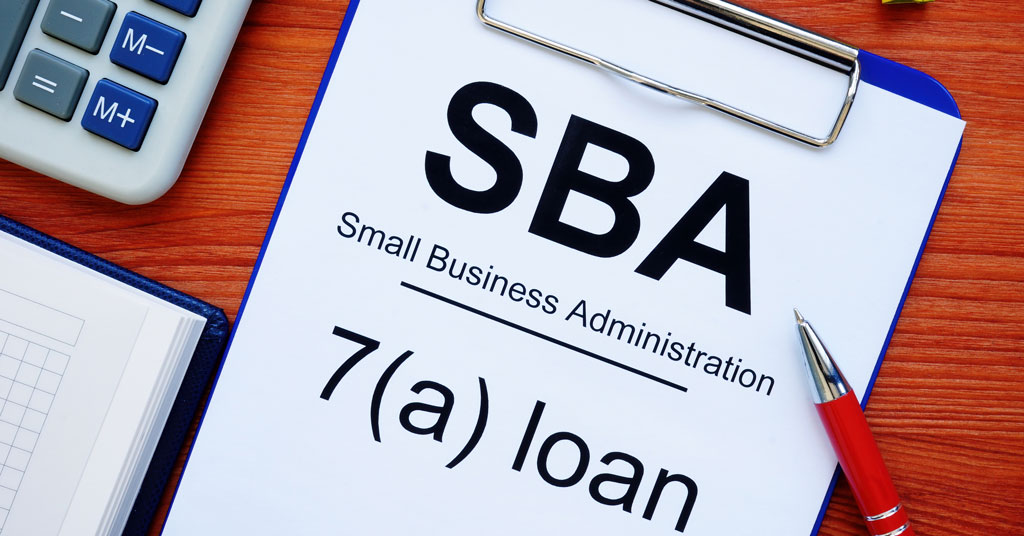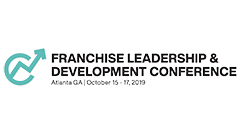A Few Simple Changes to SBA's Loan Programs Will Help Small Businesses - a Lot!

The U.S. Small Business Administration did a remarkable job with the Paycheck Protection Program (PPP). Hundreds of thousands of otherwise thriving businesses were shut down literally overnight by Covid-19, but the PPP program did its job during the first 4 months of the crisis by putting much-needed cash into the hands of small-business owners.
While the program had some glitches and hiccups, in the end, I believe history will judge the SBA as instrumental in saving Main Street U.S.A. during the global pandemic. I even believe that the PPP may be seen as the single most-effective way the federal government helped the economy recover during the pandemic.
With the PPP behind us (for now), I believe Congress can take several additional steps to continue to stimulate the still-recovering U.S. economy. With just a few simple changes to its existing loan programs, the SBA can help small businesses even more – and at a much lower overall cost to the federal government. The good news is that some of the recent Congressional proposals that have been put forth have been supporting these suggestions. Let’s have a look.
Expand 7(a) loan guarantees to 90% or more
The PPP program was run through one of the SBA’s existing loan programs known as the 7(a). This program had become a shadow of its former self during PPP as many in the lending community were consumed with closing PPP loans. Under normal circumstances, the loan program provides small-business financing to purchase land, construct and renovate buildings, acquire inventory, finance a business acquisition, purchase supplies and raw materials, refinance debt, and meet other working capital needs.
An SBA 7(a) loan is a “jack-of-all-trades” loan that many small-business owners could certainly make use of during these tricky times. One thing that makes these loans popular is that the federal government guarantees the loan so that lenders will take on more perceived risk. Currently, the governmental guarantee is set at 85% for loans up to $150,000, and 75% for loans greater than $150,000. Simply raising that guarantee to 90% or more (a la the Fed’s Main Street Lending Program), even temporarily, will expand financing opportunities for small businesses around the country.
Raise the 7(a) loan limit to $10 million
The current limit for regular 7(a) loans is $5 million. Our experience is that many small businesses in need of capital offered by the 7(a) program need higher amounts. Many larger businesses that didn’t qualify for PPP loans could benefit from 7(a), but very likely need more than what is currently offered under the program. The loan limit has not been raised in several years, and I believe a $10 million maximum loan amount would be very beneficial for the economy. As a reference, the PPP loan limit was $10 million, and this certainly proved effective.
Enhance 504 loans
The SBA’s other well-known loan program is designed specifically for owner-occupied/owner-operated commercial real estate and equipment. The SBA 504 Loan Program works in conjunction with the SBA, a private lender, and an organization known as a Certified Development Company (CDC). It’s a great loan for small-business owners who want to stop paying rent and instead buy their building, for instance, and includes a valuable job creation component. Currently, interest rates for the SBA portion of the loan are at historic lows.
During the last downturn, the SBA enabled a program called the First Mortgage Loan Pool (FMLP), which made it possible for lenders to pool and sell the first mortgage portion of SBA 504 loans. It created a robust secondary market and provided liquidity for lenders that participated in the loan program, inducing them to make more loans. Additional fees charged to lenders for this made the program neutral to the federal budget (research indicates it created a slight “profit”). Congress should reinstate the FMLP as soon as possible, as it will help lenders help more small-business owners.
The SBA should also increase the overall 504 loan limit. Expanding the loan amounts for the 504 program is a simple change that costs SBA almost nothing to implement and with little risk. The money for the SBA portion of 504 loans is sourced through the bond market, so it requires little to no outlay from the government. Making these changes to the 504 program would add jobs and save businesses millions in loan costs, with little impact on the federal budget.
Future adjustments needed
Because Covid-19 turned the small-business world on its head, in the long term the SBA will also need to look at its underwriting practices and how it views credit ratings for businesses affected by the pandemic. We can’t simply apply the old standards for underwriting to many businesses, as it is difficult to quantify the short- and long-term impacts of the virus and shutdowns on businesses. Quite honestly, we may just want to “throw out” the quarantine quarters (Q2 and Q3 2020) when reviewing loans in the future.
The SBA quickly demonstrated the value of fast turnaround time in a crisis. We are hopeful that the agency will continue to speed up approval times for its main loan programs, as small-business owners will benefit greatly from getting much-needed funding in their hands as quickly as possible.
Today’s SBA is riding high on the success of the PPP program. By making a few sensible changes, the agency now has a chance to cement its reputation as one of the main drivers of the economic recovery and the key funding source for small businesses in the U.S.
Chris Hurn is founder and CEO of Fountainhead, one of only 14 nonbank SBA-approved lenders in the U.S. As a national direct commercial lender, the firm specializes in helping small to midsized businesses finance their growth and create wealth through its SBA 504, SBA 7(a) and low-LTV conventional loan programs. The team has been involved in financing more than $24 billion in total projects.
Share this Feature
Recommended Reading:
Comments:
comments powered by Disqus| ADVERTISE | SPONSORED CONTENT |
FRANCHISE TOPICS
- Multi-Unit Franchising
- Get Started in Franchising
- Growth
- Operations
- Open New Units
- Leadership
- Marketing
- Technology
- Legal
- Awards
- Rankings
- Trends
- Featured Franchise Stories
| ADVERTISE | SPONSORED CONTENT |






 The franchise listed above are not related to or endorsed by Franchise Update or Franchise Update Media Group. We are not engaged in, supporting, or endorsing any specific franchise, business opportunity, company or individual. No statement in this site is to be construed as a recommendation. We encourage prospective franchise buyers to perform extensive due diligence when considering a franchise opportunity.
The franchise listed above are not related to or endorsed by Franchise Update or Franchise Update Media Group. We are not engaged in, supporting, or endorsing any specific franchise, business opportunity, company or individual. No statement in this site is to be construed as a recommendation. We encourage prospective franchise buyers to perform extensive due diligence when considering a franchise opportunity.